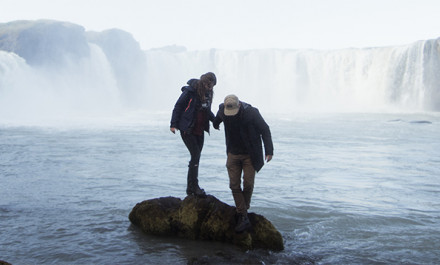- Study
- Student
- Research
- About UNAK
- University
- Schools & faculties
- Governance
- Rector
- Rector’s Office
- University Council
- University Assembly
- University Office
- Laws and regulations
- Organization
- Code of Ethics
- Councils and committees
- Strategies & policies
- On campus
- Human resource
Adjusting masculinities and femininities: Gender perspectives on immigration in Iceland

About the project
In recent years, Iceland has ranked high on various gender equality indexes, and the country feels proud of its leading position in gender equality. The important role of gender equality for the Icelandic society is reflected in the amount of research conducted in this field. However, the growing number of immigrants has received little attention within the gender debate.
In recent years Iceland’s foreign population has grown from 5700 in the year 1996 to almost 36 000 in the year 2017. The immigrant population often comes from countries ranking low on the gender equality index. For example, the biggest immigrant community in Iceland, accounting for over 30%, is from Poland, which ranks 35th on the Gender Inequality Index provided by the United Nations Development Programme (http://hdr.undp.org/en/content/table-4- gender-inequality- index). A study we conducted in 2013 looking into the social and economic situation of immigrants in Akureyri revealed a couple of gender specific differences on a variety of issues, like for example a better knowledge of the Icelandic language among foreign women compared to foreign men. It also revealed that nearly half of the women interviewed mentioned having an Icelandic partner as their reason for moving to Iceland, meanwhile most of men said work was their primary motivation. One finding was particular surprising. The immigrant group which expressed the highest satisfaction in living in Akureyri were women from Asia and Africa, meanwhile the group which showed the lowest satisfaction where men from the same regions. We assume that growing up and being socialized in a country ranking low on the Gender Inequality Index has an impact on the individual’s perception and understanding of gender roles. The purpose of this study is first of all to better understand the gender perception of the immigrant population, by comparing it to the local Icelandic population.
The project is funded by the Icelandic Center for Gender Equality.
Members
Unnur Dís Skaptadóttir, Professor, School of Social Sciences, University of Iceland, Iceland
Stéphanie Barillé, School of Humanities and Social Sciences, University of Akureyri, Iceland
Kjartan Ólafsson